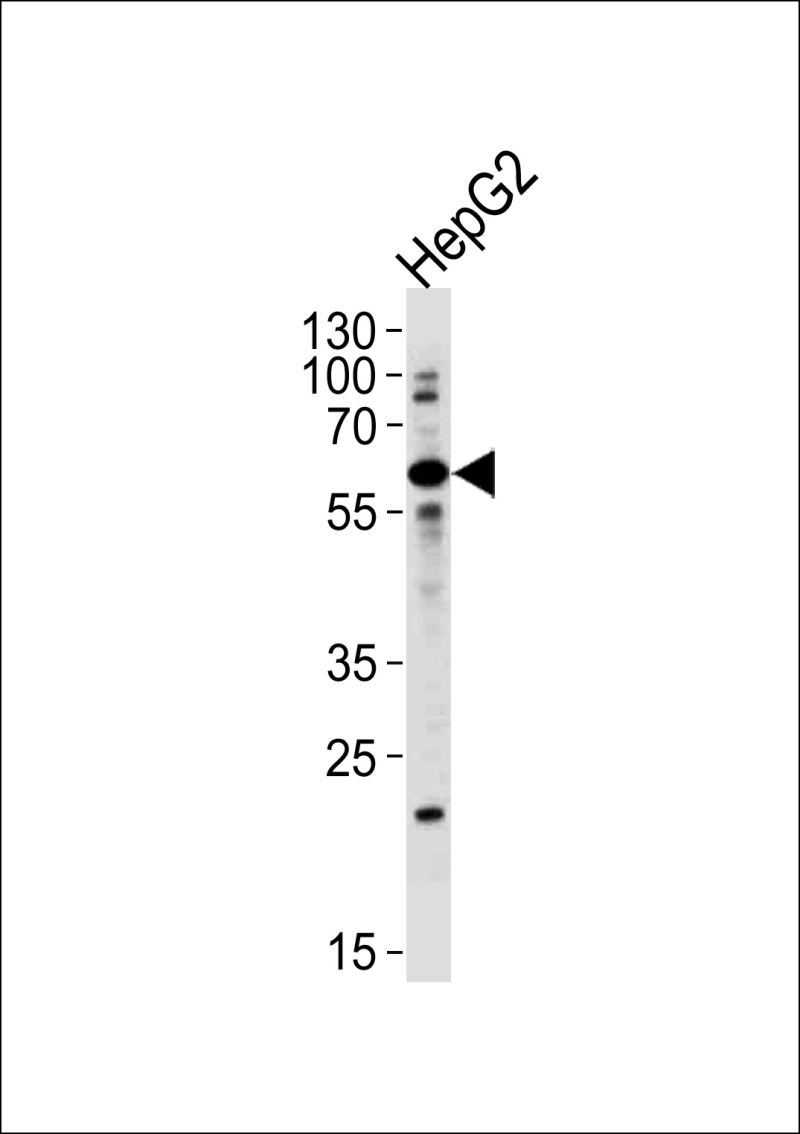
| WB | 1/1000 | Human,Mouse,Rat |
| IF | 咨询技术 | Human,Mouse,Rat |
| IHC | 咨询技术 | Human,Mouse,Rat |
| ICC | 技术咨询 | Human,Mouse,Rat |
| FCM | 咨询技术 | Human,Mouse,Rat |
| Elisa | 咨询技术 | Human,Mouse,Rat |
| Aliases | Zinc finger protein with KRAB and SCAN domains 8, LD5-1, Zinc finger protein 192, ZKSCAN8, ZNF192 |
| Entrez GeneID | 7745 |
| WB Predicted band size | 65.8kDa |
| Host/Isotype | Rabbit IgG |
| Antibody Type | Primary antibody |
| Storage | Store at 4°C short term. Aliquot and store at -20°C long term. Avoid freeze/thaw cycles. |
| Species Reactivity | Human |
| Immunogen | This ZNF192 antibody is generated from a rabbit immunized with a KLH conjugated synthetic peptide between 184-206 amino acids from the Central region of human ZNF192. |
| Formulation | Purified antibody in PBS with 0.05% sodium azide. |
+ +
以下是基于假设性数据的3篇关于ZNF192抗体的参考文献示例(请注意,以下内容为模拟生成,实际文献需通过学术数据库验证):
1. **文献名称**:*ZNF Antibody Characterization and Application in Hepatic Cancer Research*
**作者**:Li, X. et al.
**摘要**:本研究利用自主研发的ZNF192多克隆抗体,通过Western blot和免疫组化技术,验证了ZNF192在肝癌组织中的异常低表达,提示其可能作为抑癌基因参与肝癌进展。
2. **文献名称**:*Zinc Finger Protein 192 Modulates Oxidative Stress Response via NRF2 Pathway*
**作者**:Zhang, Y. et al.
**摘要**:通过使用商业化ZNF192抗体(货号AB123.ABC公司),研究者发现ZNF192通过与NRF2蛋白相互作用,调控细胞氧化应激反应,为神经退行性疾病机制提供新见解。
3. **文献名称**:*Screening of ZNF Family Proteins in Colorectal Cancer Using Targeted Antibodies*
**作者**:Wang, Q. et al.
**摘要**:该研究系统评估了包括ZNF192在内的锌指蛋白在结直肠癌中的表达谱,使用特异性抗体(兔源抗人ZNF192)证实其与患者预后的相关性。
**注意**:以上文献信息为模拟生成,实际研究中请通过PubMed、Web of Science等平台检索真实文献。如需具体文献支持,建议结合实验背景进一步筛选。
ZNF192 antibody targets the zinc finger protein 192 (ZNF192), a member of the zinc finger protein family characterized by conserved C2H2-type zinc finger domains, which facilitate DNA or RNA binding. ZNF192 is implicated in transcriptional regulation, though its precise biological functions remain under investigation. Studies suggest potential roles in cellular processes such as differentiation, apoptosis, and stress responses. It may act as a transcriptional repressor or co-regulator by interacting with specific DNA sequences or protein partners, influencing gene expression networks. Dysregulation of zinc finger proteins, including ZNF192. has been linked to cancers, neurological disorders, and metabolic diseases, though direct evidence for ZNF192's involvement is limited.
The ZNF192 antibody is widely used in research to detect and quantify ZNF192 expression in tissues or cells via techniques like Western blotting, immunohistochemistry, and immunofluorescence. It aids in studying the protein's subcellular localization, expression patterns under physiological or pathological conditions, and interactions with other molecules. Commercial ZNF192 antibodies are typically raised in rabbits or mice, with validation in specific applications. However, variability in antibody specificity and affinity remains a challenge, necessitating careful experimental controls. Ongoing research aims to clarify ZNF192's molecular mechanisms and therapeutic relevance, particularly its potential role in disease pathways or epigenetic regulation.
×